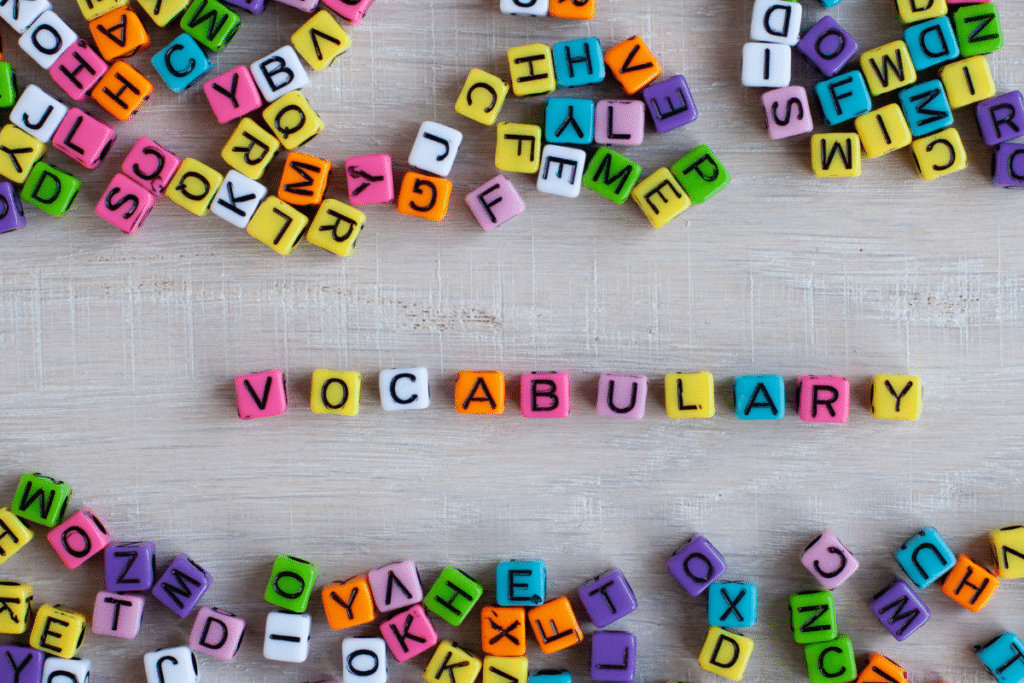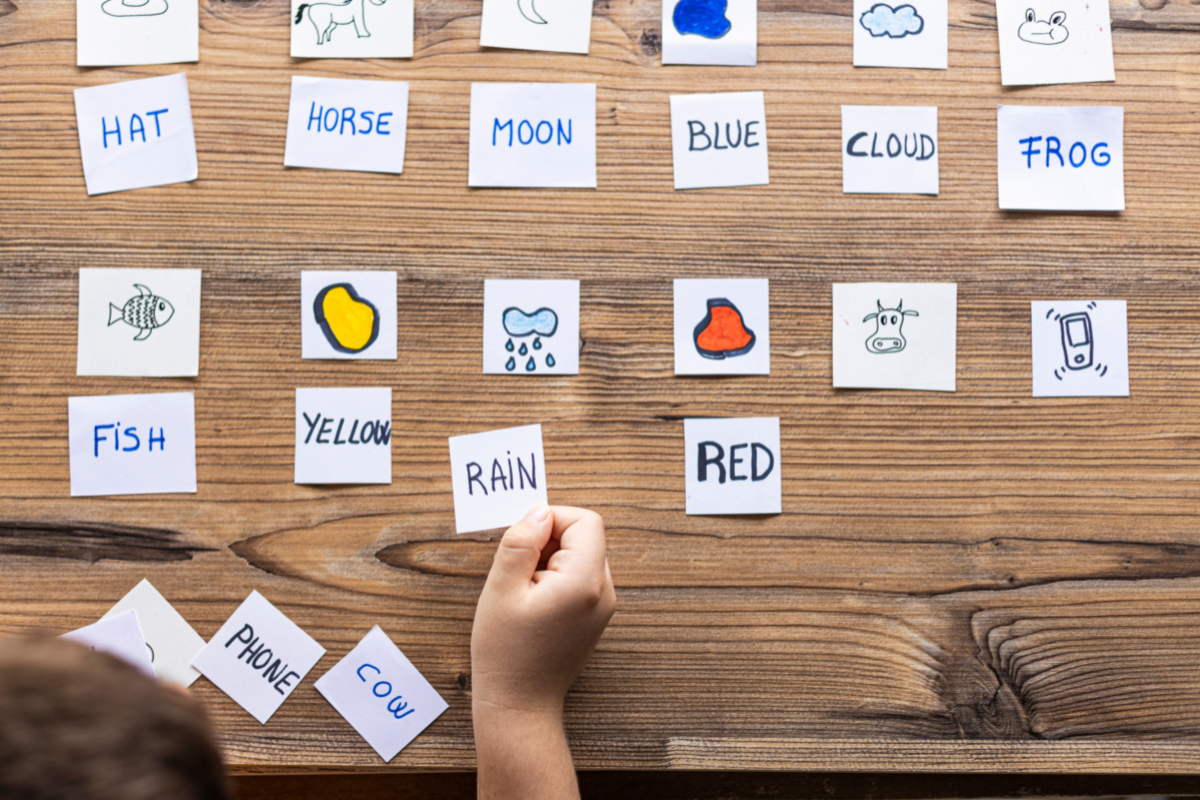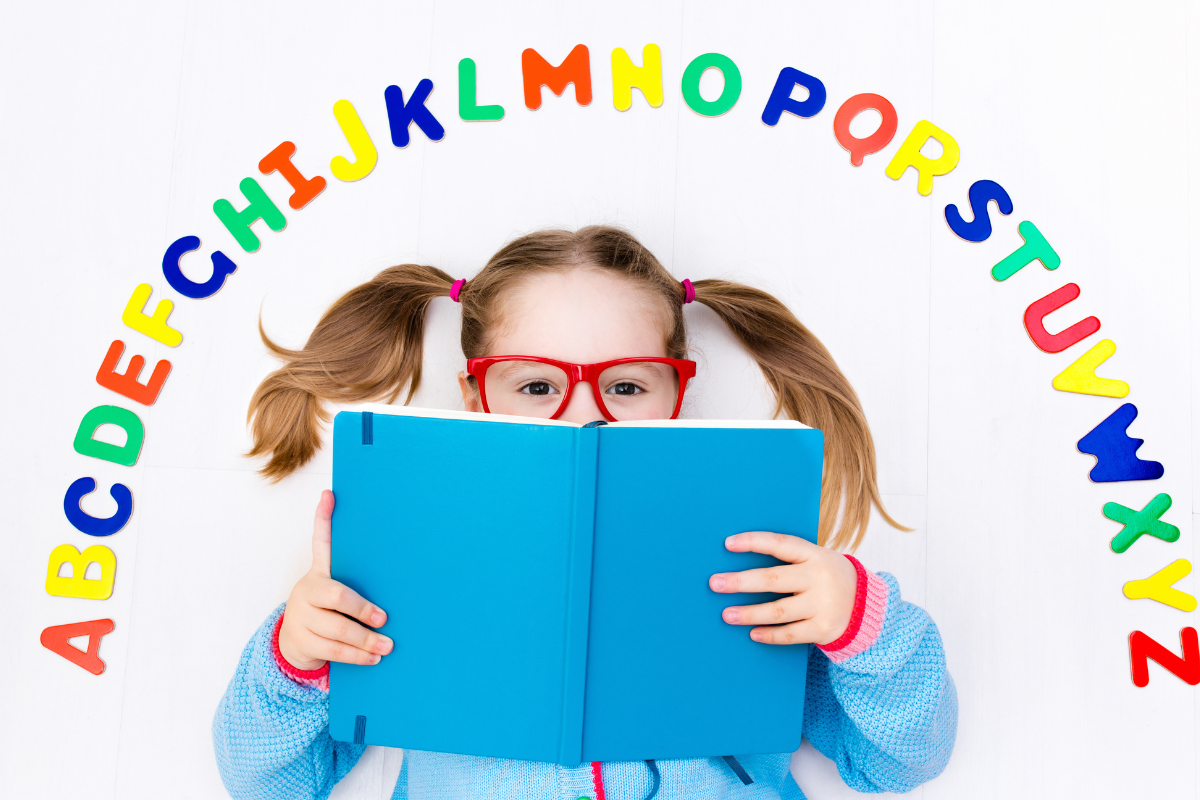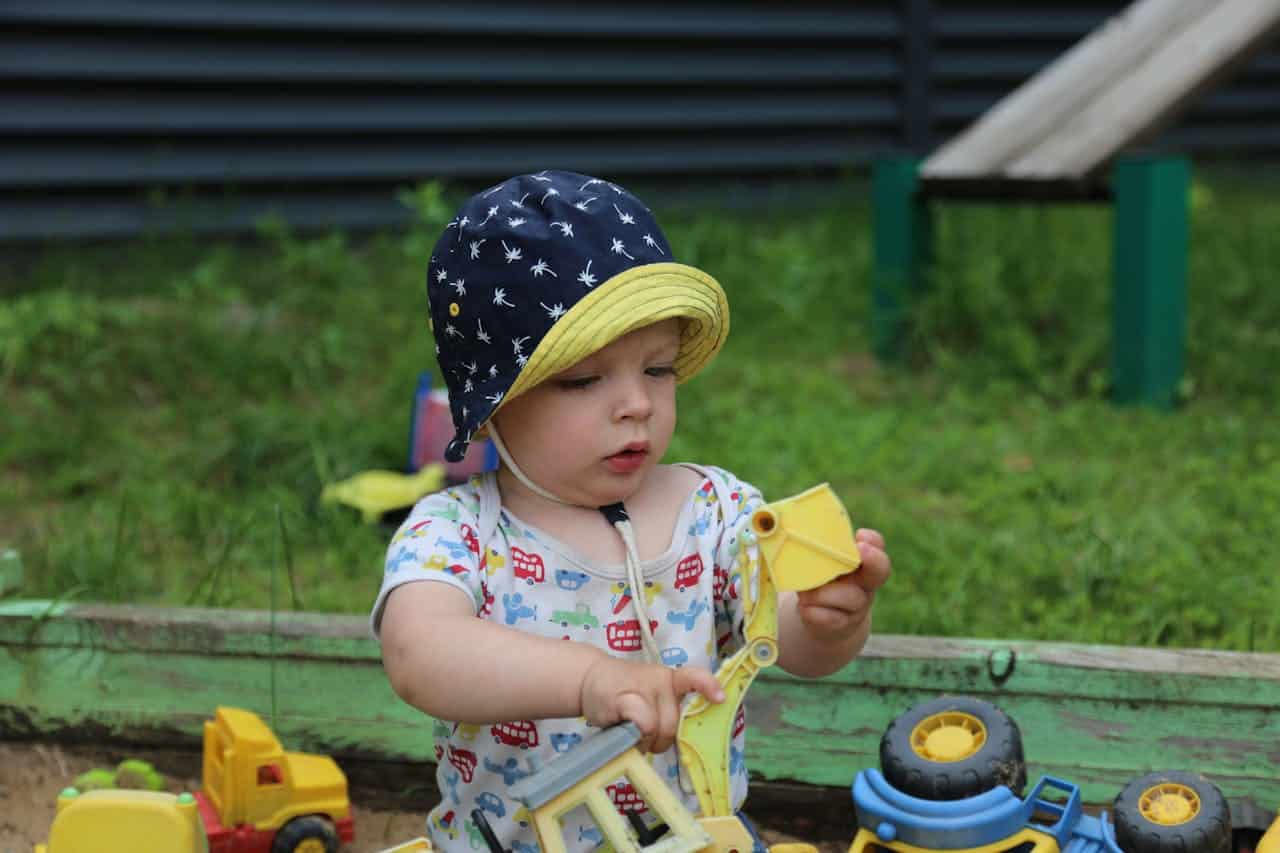
Effective Strategies for Teaching: Vocabulary Games for Kids
Developing kids’ vocabulary is a cornerstone of their early learning adventures. From birth, children begin to learn the words that will help them communicate with the world, and parents play a vital role in facilitating that growth. We step you through vocabulary games for kids strategies and activities you can use at home to help your child build a rich vocabulary.
Vocabulary for kids: Why it matters
By developing a well-structured, fun strategy for teaching vocabulary, you can help your child communicate effectively and understand what they read, write, and hear.
Reasons why rich vocabulary is vital for your child’s growth and success
- Confident communication: A strong vocabulary helps kids express themselves confidently and have meaningful conversations.
- School success: Building a wide range of words supports academic achievement and understanding in different subjects.
- Smarter thinking: Learning new words improves memory, critical thinking, and problem-solving skills.
- Meaningful expression: A diverse vocabulary empowers kids to articulate their thoughts, show empathy, and communicate effectively.
- Lifelong learning: A rich vocabulary opens doors to continuous knowledge, adaptability, and a broader understanding of the world.
Developing a strategy for teaching kids vocabulary
Coming up with a systematic way to teach kids vocabulary means your child is exposed to a diverse range of words appropriate for their age, developmental stage, and individual needs.
By following a system of learning activities, you can introduce new vocabulary for kids, reinforce previously learned words, and provide plenty of opportunities for practice and application.
Different ways to teach kids vocabulary
Interactive teaching: Engage kids in vocabulary learning through practical exercises, discussions, role-plays, and interactive activities, helping them use and retain new words effectively.
Contextual teaching: Teach vocabulary in real-life contexts. You can do this using storybooks, real-life scenarios, and examples that help kids understand the meaning and application of words.
Visual teaching: Visual aids such as diagrams, pictures, and flashcards can support understanding, and memory retention, and make the learning process more engaging.
Vocabulary games for kids
Vocabulary games for kids make learning fun and interactive while reinforcing their understanding of new words.
Try these games at home
Word Charades: Children act out words without using spoken language while others guess the word. This game promotes creativity, non-verbal communication, and understanding of word meanings. It also challenges children to think critically about conveying a word’s essence through gestures and body language.
Vocabulary Scavenger Hunt: Create a scavenger hunt where children search for objects that match specific vocabulary words. For example, ask them to find something soft, something that floats, or something green. This game nurtures their observational skills, vocabulary recall, and association of words with real-world objects.
Memory Match: Create sets of cards with word pairs or word-picture pairs and place them face down. Players take turns flipping two cards to find matches. This game sharpens memory skills, visual recognition, and word association. You can customise the game by using vocabulary words relevant to your child’s interests or current learning topics.
Word Bingo: Create bingo cards with words instead of numbers. Call out definitions, and synonyms, or provide simple descriptions, and players mark the corresponding word on their cards. This game encourages active listening and word recognition and reinforces meaning in an engaging way.
Word Guessing Game: Provide clues or describe a word without saying it, and have your child guess the word. This game promotes active listening, critical thinking, and vocabulary comprehension.
Picture Word Match: Prepare a set of picture cards and word cards. Spread them out face down and have your child match the correct word with its corresponding picture. This activity reinforces visual recognition, word association and expands vocabulary through visual cues.

Other vocabulary activities for kids
Sing songs
The repetition, contextual learning, and emotional connection involved in singing encourages kids to internalise and expand their vocabulary in a fun and engaging way.
Singing helps them become more aware of the individual sounds in words (phonemic awareness) and improves their memory and ability to retain information.
Sing Together! Is designed to make learning the alphabet and vocabulary words a joyful experience for children. With a collection of engaging songs and interactive activities, it’s a great way to expand your child’s language skills.
Activity books
Activity books for kids vocabulary are filled with fun and interactive puzzles, games, and exercises introducing children to new words and ideas.
The English Vocabulary Workbook follows a simple three-step process: tracing, copying, and independent writing, allowing children to develop their English writing skills in a fun way.
Vocabulary books for kids
Books are an invaluable resource for expanding a kid’s A-Z vocabulary.

Exposure to a wide range of words: Books expose children to many different words, phrases, and sentence structures they may not hear in everyday conversations. Reading immerses children in language-rich stories, giving them access to a wider vocabulary and deepening their understanding of language.
Learning words in meaningful contexts: Books offer context that helps children comprehend and learn new words. When words are presented within meaningful stories or informative texts, children can make connections and understand the nuances of word meanings. This contextual learning facilitates a deeper grasp of vocabulary and its application in real-world situations.
Broadens knowledge: Books expose children to a wide range of topics and introduce them to new concepts with vocabulary related to various subjects. This exposure expands their knowledge base and enriches their vocabulary in different areas.
Encourages imagination: Books stimulate a child’s imagination and creativity, encouraging them to visualise the stories and characters. This helps children connect with the language on a deeper level, making vocabulary acquisition a more enjoyable experience.
Vocabulary books for kids – Toddlers (Ages 1-3)
Speak Up Stories
Speak Up Stories help children improve their English reading comprehension and conversation abilities by reciting picture books with frequently-used phrases and listening to double and quad-speed versions featuring books with eight pages that are easy to understand.
Dear Zoo by Rod Campbell
This classic lift-the-flap book introduces young children to various animals while teaching them descriptive words and animal names.
Brown Bear, Brown Bear, What Do You See? by Bill Martin Jr. and Eric Carle
This book introduces colours and a range of animals through vibrant illustrations and rhythmic text, enhancing vocabulary and visual recognition.
Peek-a-Who? by Nina Laden
This engaging board book invites toddlers to guess which animal or object hides behind die-cut holes, encouraging word recognition and interactive play.
Vocabulary books for kids – 4 years and upwards
The Very Hungry Caterpillar by Eric Carle
This beloved picture book takes children on a journey with a hungry caterpillar, introducing vocabulary related to days of the week, numbers, and various foods.
The Gruffalo by Julia Donaldson
This delightful story introduces children to descriptive language and a range of animal characters, stimulating their imagination and expanding their vocabulary.
The Wonky Donkey by Craig Smith
With its funny rhymes and catchy rhythm, this book not only entertains but also introduces new words and encourages children to participate in reading aloud.
Speak Up Stories are also available for 4 years and upwards.
Using flashcards to teach vocabulary
Using high-speed flashcards to teach your child vocabulary can make a remarkable and rapid improvement in their language skills.
Explore why these cards pack such a punch when expanding your child’s vocabulary

Increased exposure and repetition: High-speed flashcards give your child exposure to a wide range of words in a short time, helping reinforce their learning and accelerate vocabulary acquisition. By seeing words more often, your child will have more opportunities to memorise them.
Fast word recognition: Flashcards shown at a rapid speed encourage your child to process and recognise words quickly. This helps them develop swift word recognition skills, which are essential for reading fluency and comprehension, as well as boosting confidence in their reading abilities.
Contextual learning: Flashcards that include images or basic sentences alongside the words, providing contextual cues that help your child to understand the meaning of words. They can make connections between words and their real-life applications, deepening your child’s understanding of vocabulary and how words are used in different situations.
Active engagement and focus: High-speed flashcards demand your child’s focused attention. This level of engagement enhances their ability to absorb the words being presented.
Time efficient: In short bursts of focused learning, you can cover a significant number of words. This makes flashcards a valuable resource for busy parents. You can fit in a quick lesson with limited time and accelerate your child’s vocabulary development.
Adaptability: A highly versatile learning tool, flashcards can be customised to fit with your child’s expanding vocabulary needs. Flashcards can be adapted to match your child’s learning goals, whether you focus on particular themes, concepts, or difficulty levels.
Shichida Australia
Explore the Shichida Australia range of Flashcards designed to introduce your child to a world of words.
At Shichida Australia, we aim to lay the building blocks for vital literacy skills by introducing language into your child’s life at a young age. Through fun activities and vocabulary games for kids, we go beyond simply practising these skills with your child. We also provide guidance on how to further cultivate these capabilities with them in your home environment. Book your trial class today!


